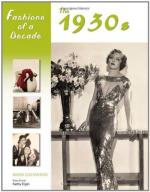|
This section contains 562 words (approx. 2 pages at 300 words per page) |

|
Hospitals and the Financial Crunch.
One of the effects of the Depression was to increase public interest in prepayment for medical care. Until the 1930s hospitals primarily depended on endowment income, charitable gifts, and patients' fees to function. But with the advent of the Depression, these sources dried up. The high rate of unemployment forced hospitals to provide more free hospital care than they had done in the past, and their finances were in crisis. In just one year after the 1929 stock market crash, average hospital receipts per person fell from $236.12 to $59.26. In 1931 only 62 percent of the beds in voluntary hospitals were occupied on an average day, compared to 89 percent in government hospitals where costs were covered. The financial insecurity of the nation's voluntary hospitals encouraged them to turn to insurance for a solution and led to the organization...
|
This section contains 562 words (approx. 2 pages at 300 words per page) |

|




